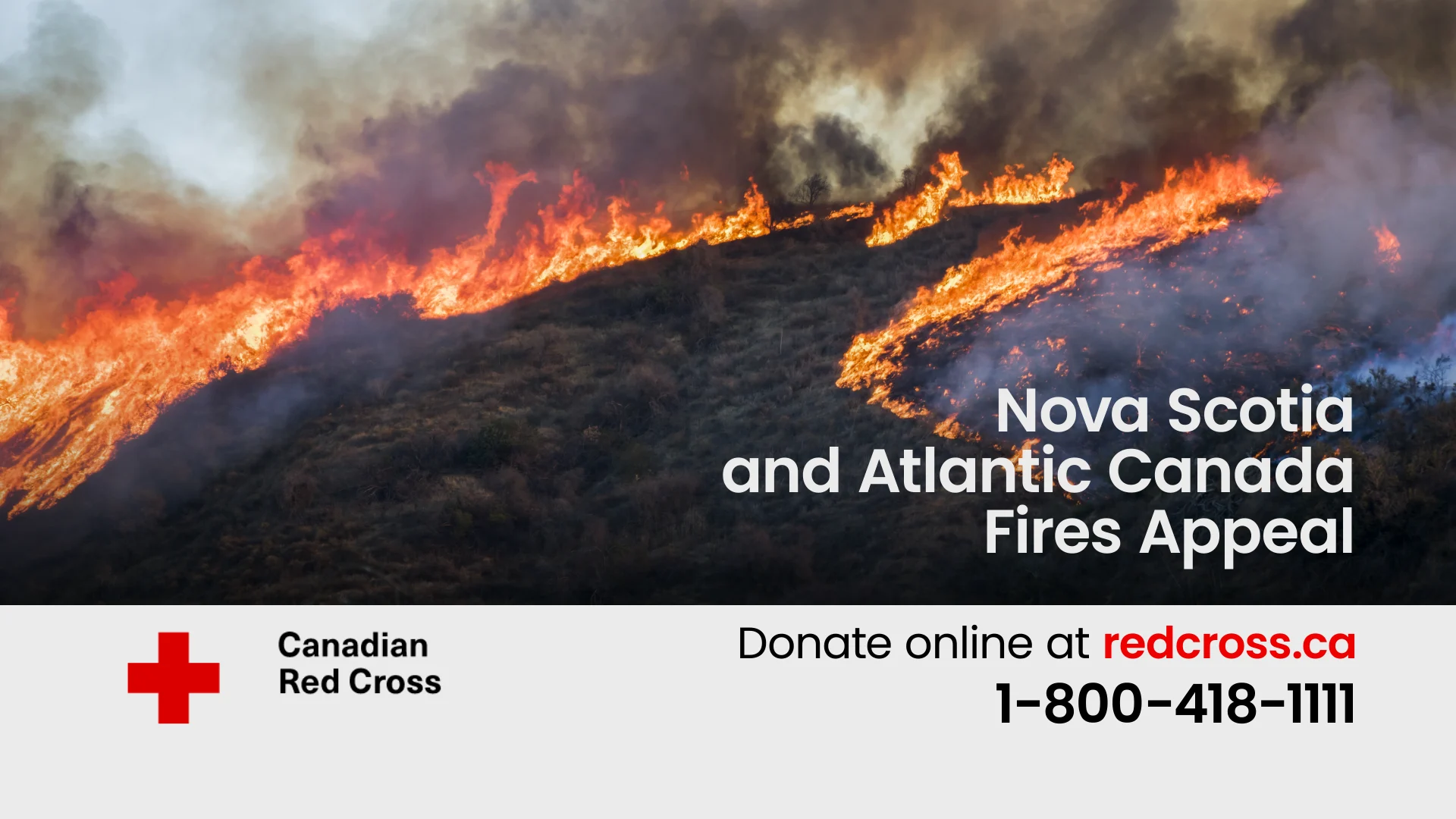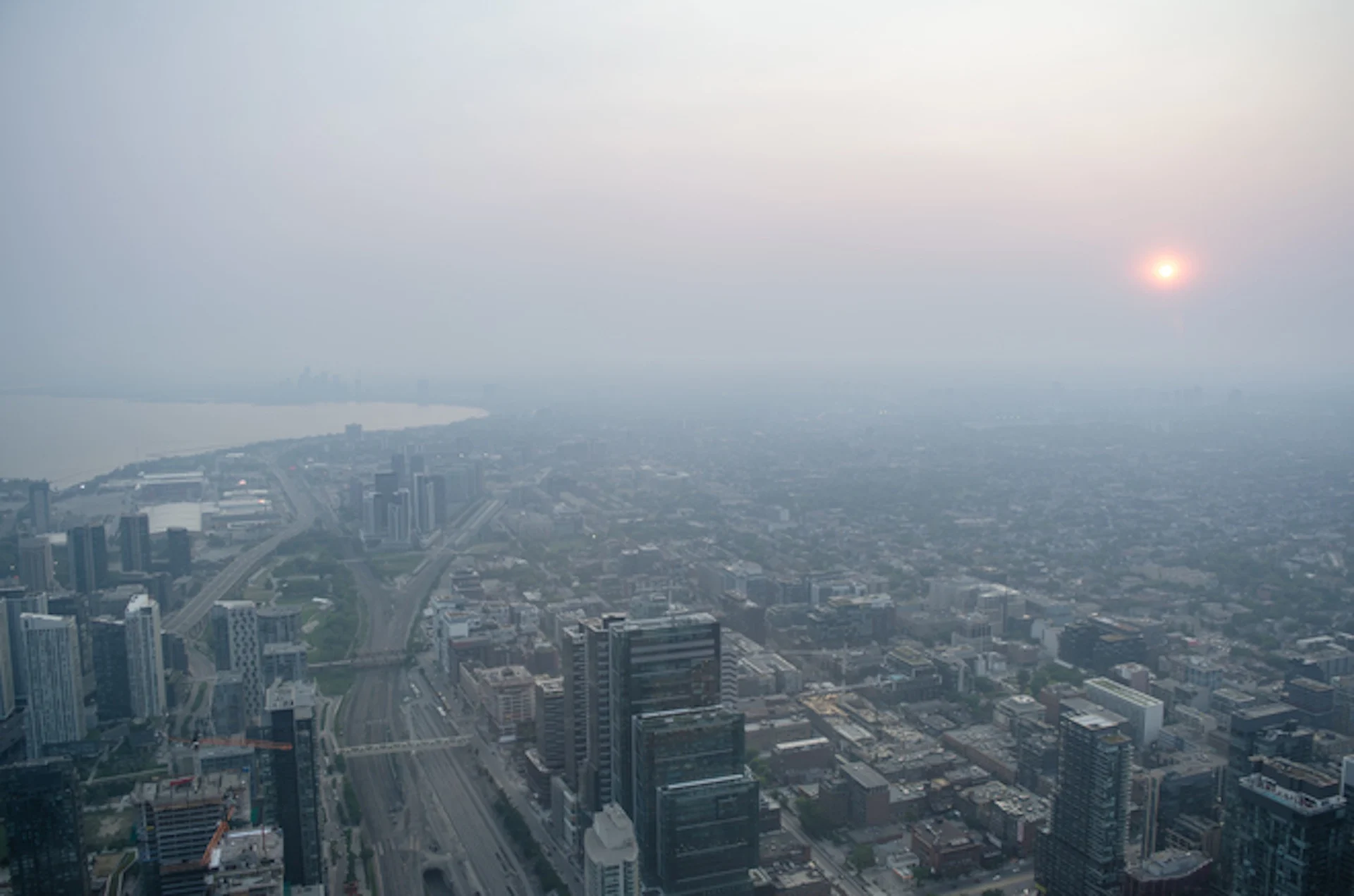
Southern Ontario to see worst of the hazardous air quality Thursday
Millions of Canadians are experiencing poor, hazardous air quality as smoke from Quebec and northeastern Ontario fires billows and winds shift
Visit The Weather Network's wildfire hub to keep up with the latest on the active start to wildfire season across Canada.
With surface smoke travelling south this week, poor air quality has become a major concern for major cities like Ottawa and Montreal, with even residents in the Greater Toronto Area (GTA) feeling the impacts. Some of these regions have recorded some of their worst air quality in recent times.
As of Wednesday evening, there are more than 140 active wildfires burning in Quebec and scores of fires burning in northern Ontario. By this time last year, 202 fires had burned throughout Quebec. This year so far, the province has seen 443 wildfires.
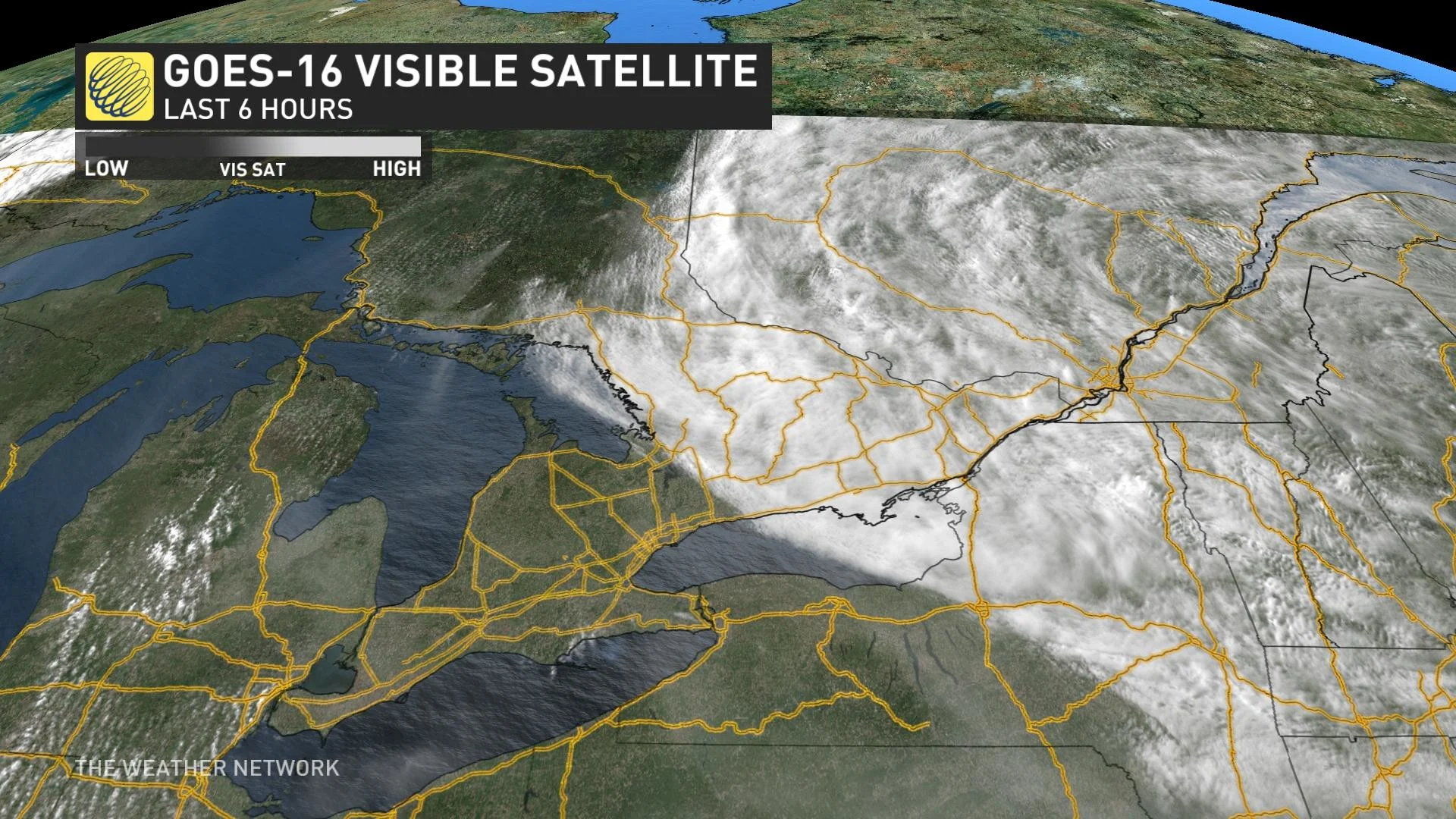
RELATED: This ‘Omega block’ will dominate Canada’s weather this week
Widespread special air quality statements are still in effect for both provinces and poor air quality may persist through the remainder of this week. People are being urged to keep their doors and windows closed and to reduce time spent outdoors.
"Wildfire smoke can be harmful to everyone’s health even at low concentrations. Continue to take actions to protect your health and reduce exposure to smoke," says Environment and Climate Change Canada (ECCC) in the statement.
WATCH: What parents should know about wildfire smoke and their kids
DON'T MISS: What’s in wildfire smoke? Toxicologist explains health risks, best masks to use
Conditions expected to further deteriorate through Thursday
While conditions may temporarily improve again throughout the overnight Wednesday, Thursday morning is projected to be the worst timeframe for air quality in the GTA. N95 masks will be a helpful tool to protect yourself from inhaling smoke in the coming days.
However, Montreal and Ottawa will actually improve slightly on Thursday.
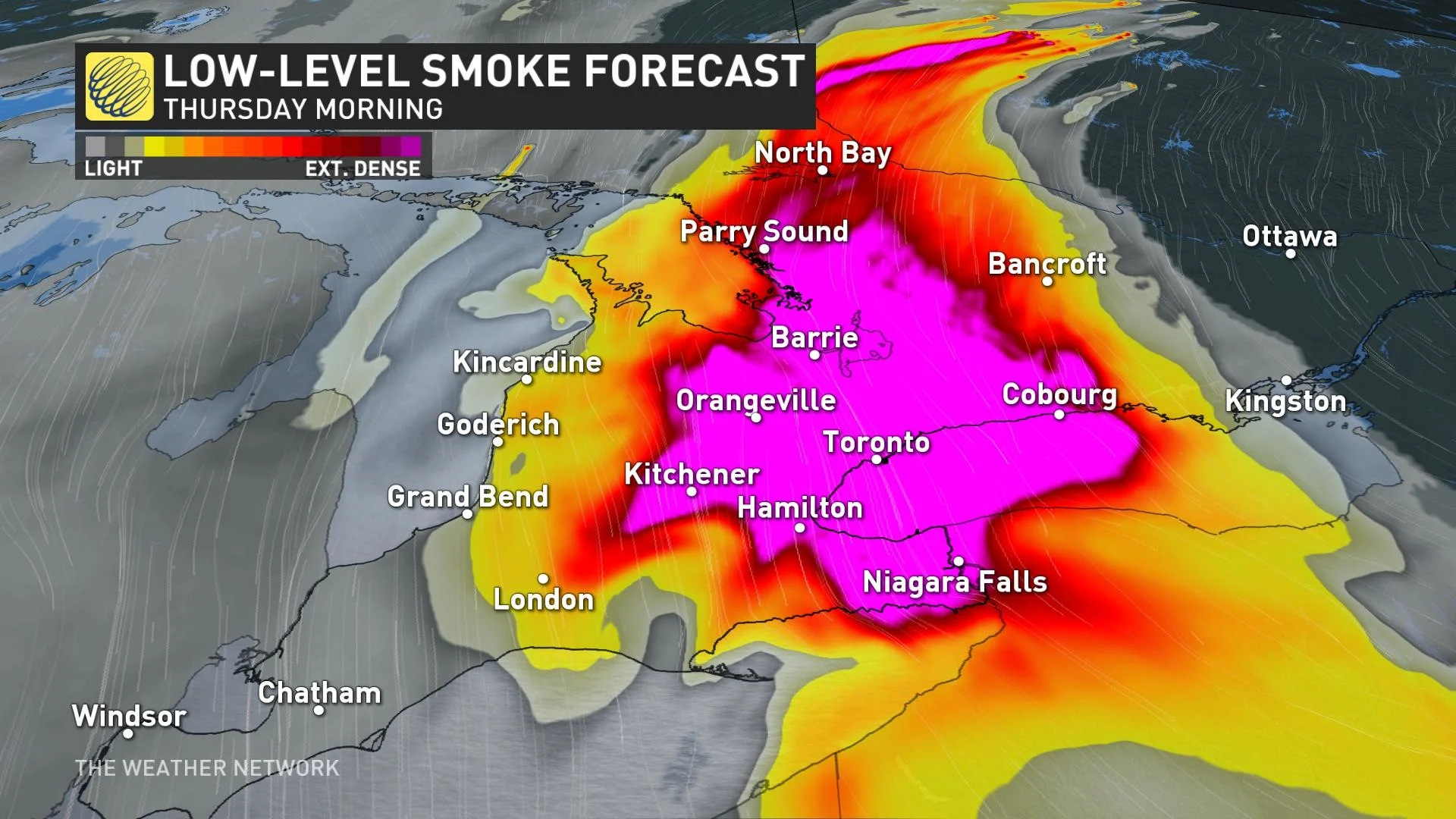
SEE ALSO: 90% of humans are exposed to air pollution that exceeds safety guidelines
Although we are forecasting to see worse air quality in the GTA Thursday, there has been some cloud cover over the Quebec wildfires, so it's harder to see how much smoke will push its way into southern Ontario.
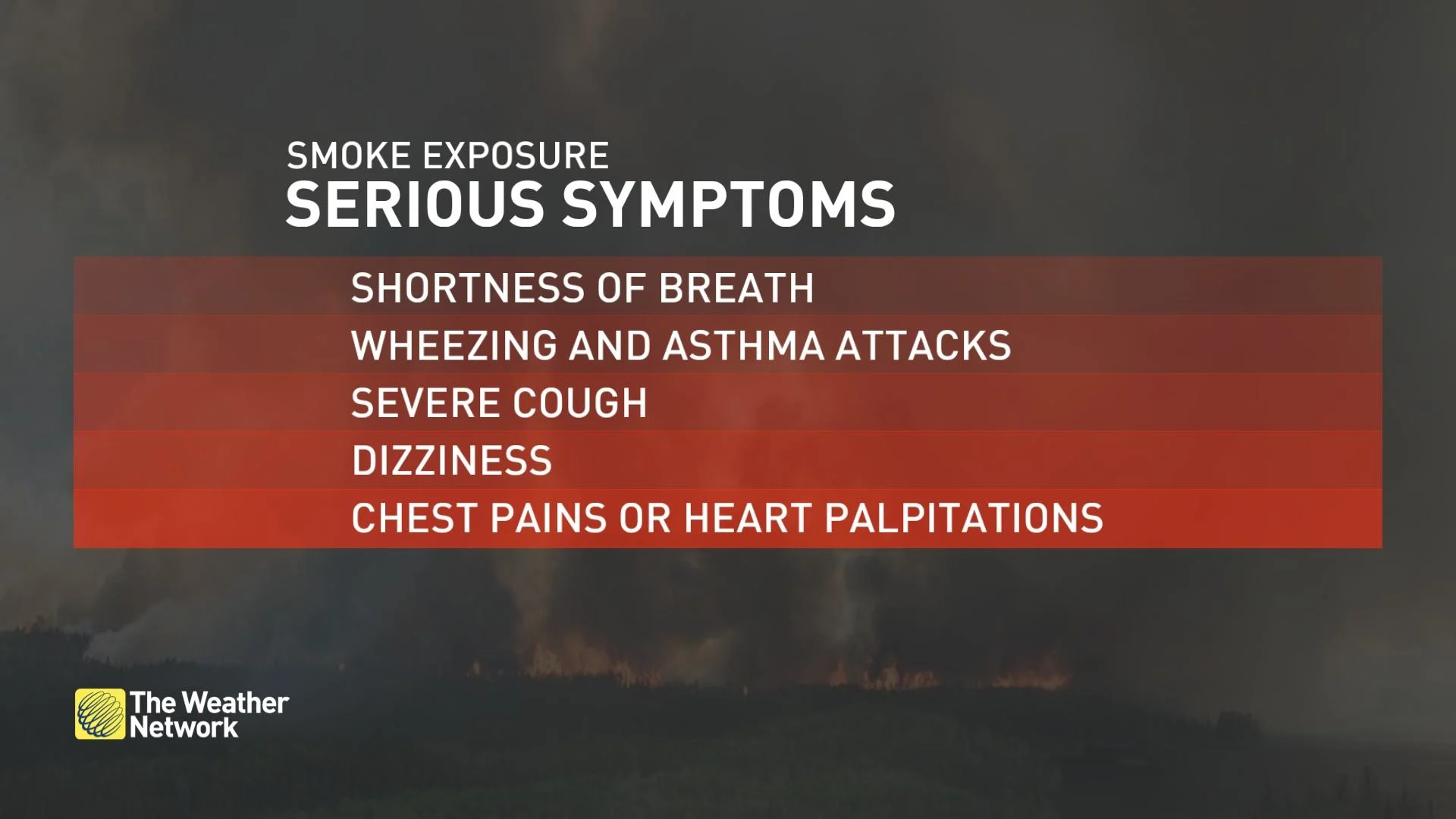
Poor air quality can have serious health repercussions. (Source: Government of Canada)
RELATED: AQI, AQHI, and your health: Air quality ratings explained
Those in northeastern Ontario are not exempt from the smoky impacts, either, as fires burning north of Georgian Bay are billowing smoke towards communities along Lake Huron.
Many may end up seeing outdoor recreational activities to be limited or outright cancelled this week due to the poor air quality.
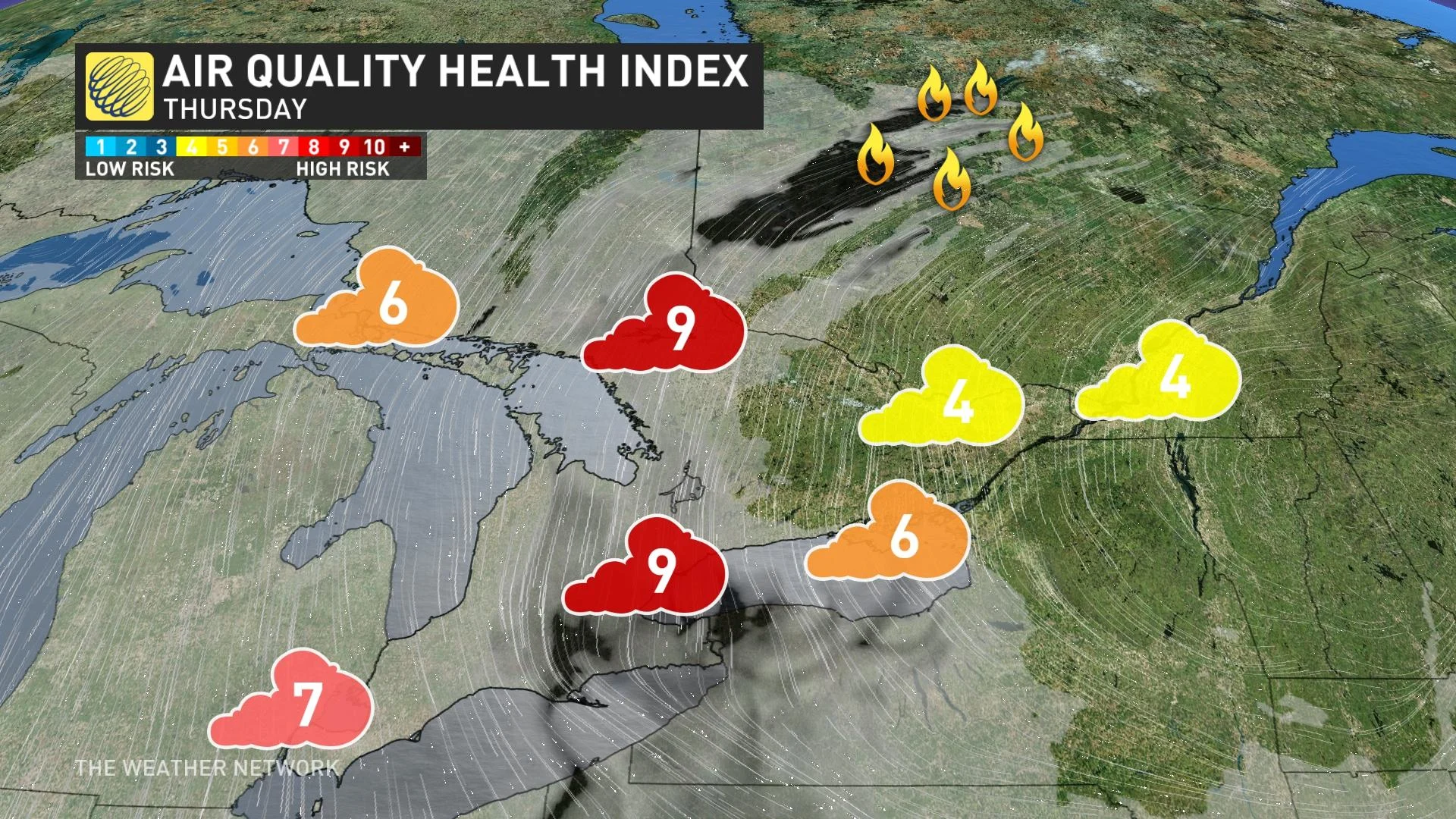
RELATED: What are the most serious health risks of climate change?
WATCH: Air quality is about to get even worse for the GTA
DON'T MISS: Top five ways human-caused wildfires start
The sunrise may become totally obstructed for some if low-level smoke concentrations continue to increase.
Winds are expected to shift towards the southwest, pushing the dense smoke into the GTA and the rest of southern Ontario, as well as into the Georgian Bay and Lake Huron areas. This may end up being the most extreme concentration of wildfire smoke these areas will see so far from these fires.
This could, however, provide some welcome relief to residents in eastern Ontario and southern Quebec.
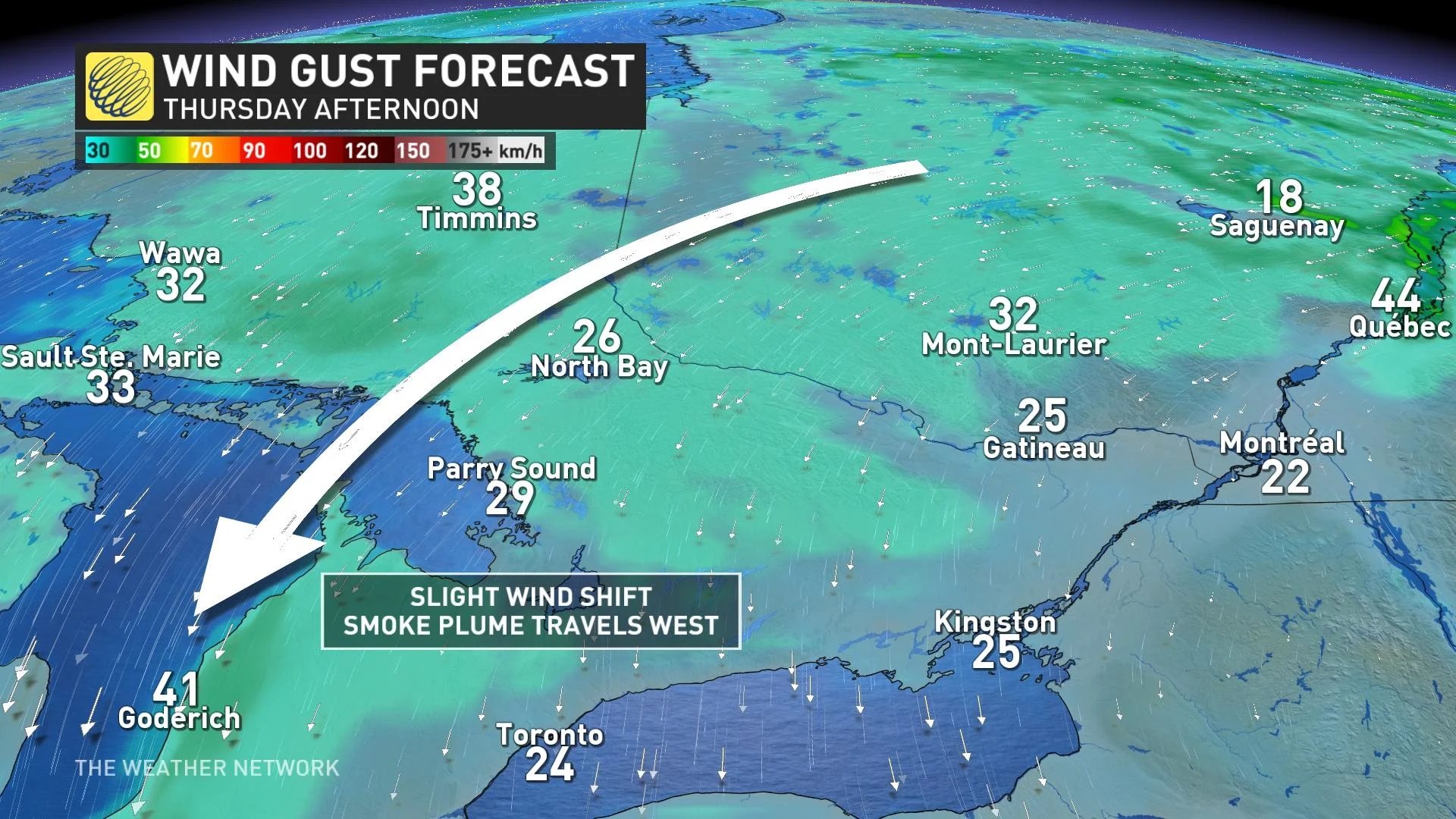
To end the week, air quality from the smoke should improve and deteriorate in waves throughout Friday across much of southern Ontario and the GTA.
For best practices to keep yourself safe from wildfire smoke, click here.
WATCH: What will it take to clear the smoke out of southern Ontario?
Thumbnail image courtesy of Dan Sedran/Submitted, taken in Toronto, Ont.
For more forecast information and updates for Ontario and Quebec, keep checking back to The Weather Network.
